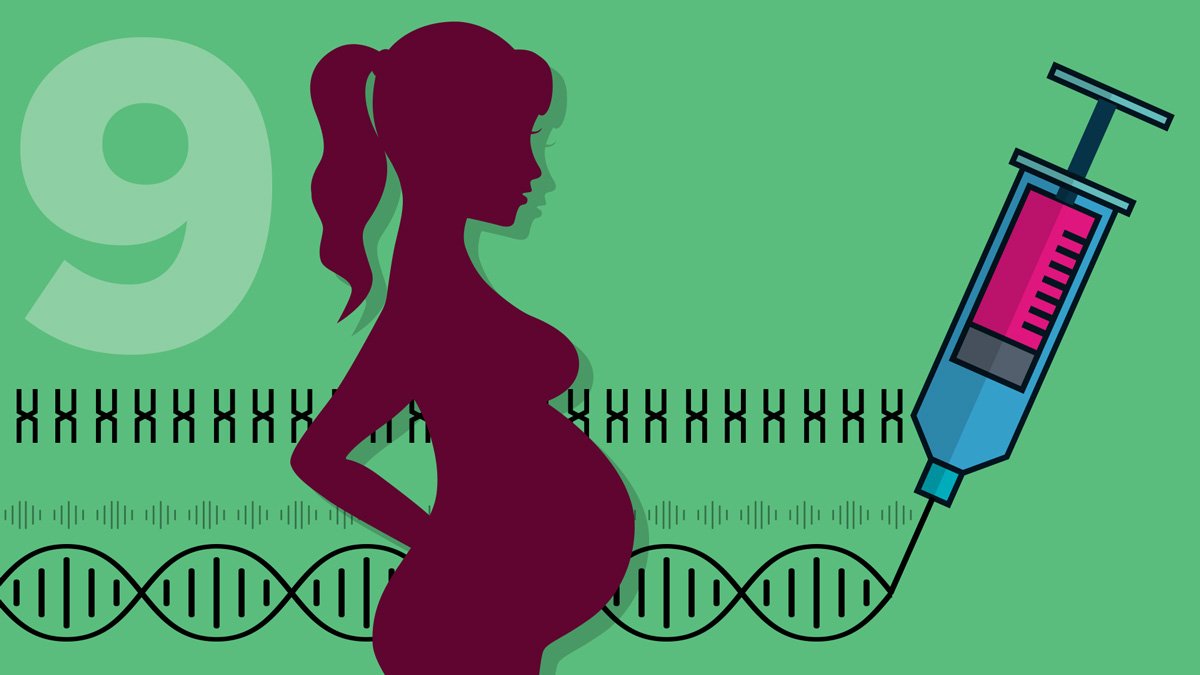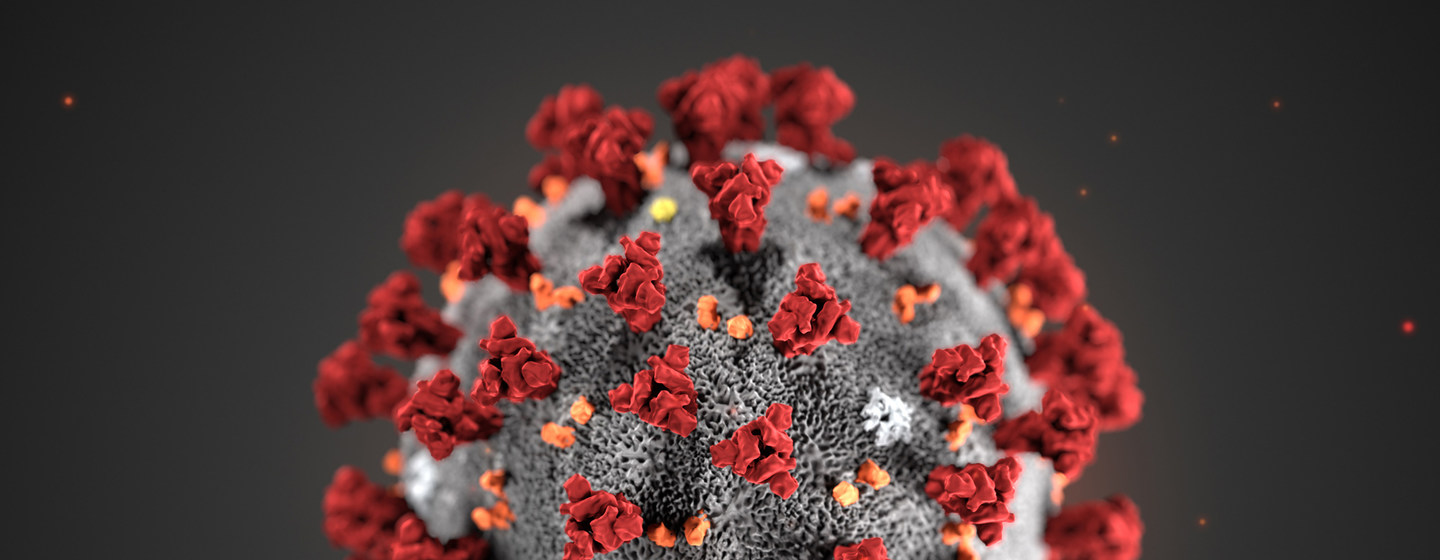
Prenatal genetic screening provides expectant parents with important information about their unborn child’s health. Recently, new guidelines have been released for noninvasive prenatal genetic screening (NIPS), which can provide more accurate information than ever before. In this article, we’ll take a look at what noninvasive prenatal genetic screening is, how it works, and what the new guidelines mean for expectant parents.
What is Noninvasive Prenatal Genetic Screening?
Noninvasive Prenatal Genetic Screening (NIPGS) is a way of testing for genetic abnormalities during pregnancy. This screening is often done using a combination of blood tests or ultrasound, providing both mother and doctor with important information about the health of the baby. NIPGS can detect chromosome disorders, such as Down’s Syndrome, as well as other conditions that could potentially affect the fetus. Its accuracy and noninvasiveness make it an ideal screening method for pregnant women who are concerned about their baby’s health. NIPGS is becoming increasingly popular as a screening tool, offering peace of mind and advanced screening capabilities to those who choose to receive it.
It involves taking a blood sample from the mother, which is then analysed for fragments of the baby’s DNA in order to detect any potential issues. Prenatal testing is increasingly seen as a necessary part of antenatal care, and can be hugely beneficial in helping to identify problems before the baby is born. Common tests include ultrasound scans, blood tests, amniocentesis and chorionic villus sampling (CVS). Through such procedures, conditions such as Down’s Syndrome can be diagnosed prior to birth, allowing parents to make informed decisions about the future.
NIPGS is a safe and reliable way of detecting genetic abnormalities in early stages of pregnancy, providing new parents with vital information to make informed decisions Besides testing with NIPGS, it is important to remember that there are other testing methods available for expecting parents to detect genetic abnormalities in early stages of pregnancy. Even though NIPGS testing is extremely reliable and safe, it is always recommended to consult a healthcare professional in order to receive detailed information and make the best decision for the health of the mother and baby.
Benefits of Noninvasive Prenatal Genetic Screening
Noninvasive prenatal genetic screening can help identify certain genetic abnormalities in unborn babies without the risks associated with an invasive procedure. This screening can provide parents with important information about the health of their unborn child and is a relatively simple and low-risk process. During the screening, a maternal blood sample is taken and used to look for fetal DNA that could indicate an abnormality or chromosomal disorder. While screening can provide helpful information, it is important to note that it is not always 100% accurate. Consultation with a medical professional should always follow screening results in order to support your decisions moving forward.
It is a much less costly option than traditional methods and can be done at any stage of pregnancy. Prenatal genetic testing is a relatively new option for expectant parents. This testing can provide helpful information about the health and development of their baby and help identify potential issues that can be managed more effectively. The tests are quick, easy to understand, and can be done using a simple swab or blood draw. Depending on the results, some couples may choose to continue with the pregnancy while others may opt to terminate. Prenatal testing is a great way for couples to feel prepared for what lies ahead in their journey as parents.
The results of the test can provide expectant parents with important information to make informed decisions about their pregnancy and their baby’s future health Moreover, the article has shed light on the importance of prenatal tests and how they can provide expectant parents with invaluable insight into their baby’s future health. It also highlights how this information can help them to make informed decisions about their pregnancy. The results of the test can give parents a better understanding of any potential risks and allow them to take proactive steps to address any issues in advance. Genetic counsellors play an important role in providing information about prenatal screening, the implications of it and understanding the outcomes.
Overview of New Guidelines for Noninvasive Prenatal Genetic Screening
Noninvasive prenatal genetic screening tests are now recommended for all pregnant women in the United States, regardless of age or risk factors. With genomics, medical professionals now have access to a wide array of information that can help detect birth defects and chromosomal disorders amongst unborn babies. These tests allow for early detection and intervention that can help improve the outcome for both the mother and the fetus. Additionally, genomics has allowed us to unlock new insights into the genetic landscape of unborn children, allowing us to make much more informed decisions regarding their health and well-being.
The new guidelines also recommend informing women about potential risks and benefits associated with these tests before making a decision. Counselling is seen as a crucial part of this process as it helps women to understand both the potential risks and benefits associated with the tests in detail. This counselling typically includes detailed discussions about the implications of the test results, counselling from healthcare professionals and advice on other available options. Ultimately, counselling can help women to make the best decision possible and ensure they are fully informed about the potential risks and benefits before making any decisions.
Tests should be done early in the pregnancy, preferably between 10-13 weeks gestation, to ensure accurate results are obtained Again, genomics technologies have allowed for the development of prenatal testing options that can detect chromosomal abnormalities early in the pregnancy. Tests should be done as early as possible, preferably between 10-13 weeks gestation, to ensure accurate results are obtained. As genomics advancements continue to move forward, it is expected that more affordable and user-friendly prenatal tests will become available in the near future.
How the New Guidelines Affect Connectedness to Care
The new guidelines emphasize the importance of telehealth and digital technology in allowing patients to stay connected to care, particularly when it comes to counselling. Telehealth counselling services have become an increasingly vital resource as more and more individuals are looking for mental health support. These services provide counselling through a variety of digital platforms, allowing patients to access counselling without having to leave home. In addition, telehealth counselling services have the potential to significantly expand counselling accessibility by reducing wait times and increasing appointment time slots. This is essential, as counselling can be a powerful tool for helping individuals cope with difficult life events and make positive progress along their mental health journey.
These guidelines also provide a framework for providers to use when considering the best approaches and tools for keeping their patients informed. screening is an important part of this process, and screening options such as screening articles, screening videos, screening podcasts and screening webinars are all available for providers to access. Through screening these materials, providers can ensure their patients are able to stay current on the latest topics in health and wellness. Additionally, screening allows providers to stay informed on new developments in the medical field so they can provide the best possible advice and care for their patients.
Telehealth has been shown to reduce the physical distance between medical professionals and their patients, making it easier for them to communicate and collaborate on healthcare decisions Similarly, genetic telehealth can be used to bridge the genetic divide between medical professionals and their patients. It allows them to more closely collaborate and communicate on genetic-related healthcare decisions, making genetic health care more accessible to individuals who may have difficulty accessing genetic counselors or geneticists. Telehealth has been shown to greatly reduce the physical distance between medical professionals and their patients, making genetic health care more attainable for those in need.
How Laboratories Can Implement the New Guidelines
Laboratories should ensure that all staff members are trained on the new guidelines and any related regulations. This is especially important for any article processing services as the regulations surrounding these services can be quite complex. Training and education should focus on providing staff members with the knowledge and skills needed to understand the legalities and properly execute the procedures related to article processing. Additionally, periodic reviews of applicable legislation should be conducted in order to ensure that staff members are trained on any changes to regulations or guidelines pertaining to article processing.
Safety protocols should be reviewed and updated to comply with the new guidelines, particularly in genetic research and studies. Reviewing genetic safety protocols is of the utmost importance to ensure full compliance with the strict regulations imposed on genetic analysis, particularly in clinical and laboratory settings. To meet these standards, it is vital to keep genetic safety protocols up-to-date, so that researchers and scientists are aware of any changes and new developments within the field. In this way, genetic researchers and scientists can continue their work safely and ethically.
Regular audits should be conducted to ensure adherence to the guidelines on an ongoing basis Similarly, genomics research must be regularly audited to ensure genomics guidelines are being followed. Auditing should occur on an ongoing basis to keep genomics research in compliance and updated with the latest genomics standards. This is important for maintaining the accuracy and reliability of genomics research.
FAQs About the New Guidelines for Noninvasive Prenatal Genetic Screening
What is Noninvasive Prenatal Genetic Screening and why is it important? Noninvasive Prenatal Genetic Screening (NIPGS) is an important counselling tool that screens for chromosomal abnormalities in unborn babies. It is a safe, non-invasive procedure that requires only a blood sample from the expectant mother. The screening tests can detect common genetic conditions such as Down syndrome as early as 10 weeks into the pregnancy. The counselling provided by healthcare professionals allows expectant parents to make informed decisions regarding their baby’s health and wellbeing. NIPGS is an invaluable tool in helping expecting couples assess the potential for any genetic issues during their pregnancy, allowing them to better prepare for any eventuality and making it an important counselling resource.
Who should get tested, and when should they get tested? Prenatal testing is an important part of the pregnancy process. It is recommended that pregnant women get prenatal testing to ensure the health of the baby and mother. Tests may include a variety of screenings such as ultrasound, amniocentesis, and blood tests. Different tests are available at different stages of pregnancy and should be discussed with your healthcare provider. Prenatal testing can provide important information about the baby’s health and help determine the best course of action for a healthy delivery. It is important to stay informed and have a conversation with a healthcare professional to understand what prenatal testing options are right for you.
What types of conditions can be detected through Noninvasive Prenatal Genetic Screening? Also, Noninvasive Prenatal Genetic Screening can be used to detect a variety of conditions such as Chromosomal abnormalities, Neural Tube Defects, Trisomy 21 (Down Syndrome), Trisomy 18 (Edwards Syndrome), or Trisomy 13 (Patau Syndrome). These tests are important for early detection and can give expecting parents peace of mind during their pregnancy.
Final Say
In conclusion, noninvasive prenatal genetic screening (NIPS) offers expectant parents more accurate information than ever before about their unborn child’s health. The new guidelines for NIPS that were recently released provide clear, evidence-based guidance for clinicians and patients to help ensure the most effective, safe and accurate use of the technology. Expectant parents should consult with their doctors about NIPS to see if it’s right for them.





